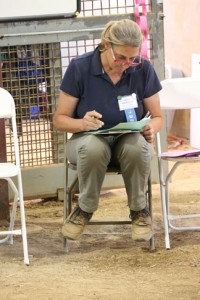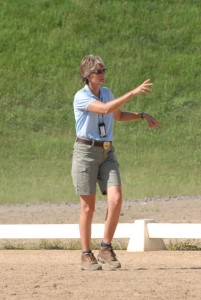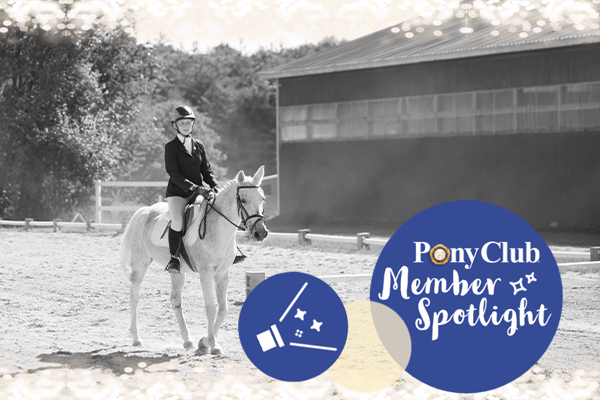Organizing a Horse Show: Have you got what it takes?
Have you ever considered organizing a horse show? Do you know what all goes on behind the scenes in planning as well as implementation? Do you ask yourself, is it worth it? It’s a tough job and only the toughest continue to put on shows each year. This is a small primer on what it takes to put together a show. Hopefully this will help those who have a desire or have never stepped up to this daunting task understand all that goes into making horse shows a success. (Editor’s note- this doesn’t include costs)

First, you need to find a venue to host your show. Once that is found you also need to find dates at that venue. Those dates cannot conflict with other shows of your discipline (if they do be prepared to lose entries and potentially create some discord between you and the other show organizer) and should be at a time of year appropriate for the venue (IE- no indoor in Kentucky means no shows outside in January). The next thing you need is equipment. In the office you will need: computers for scoring and information (no joke, Ky Classique HT organizers bought over 7 laptops to be able to run their show), pens, calculators, file folders, rider numbers, ribbons, and trophies to just name a few items. For outside equipment you will need a sound system to announce (possibly multiple depending on the show), jumps or poles or barrels or dressage rings, stopwatches (for timed events), flowers (filler) or anything to make sure your equipment looks clean and of show quality, an arena drag (sometimes provided by the show venue), chairs, tables, and potentially pop up tents for Judges or volunteers to sit under. If all of these items can be obtained, now you need officials. These officials include Judges, Technical Delegates, President of the Ground Jury, Announcers, Scorers, and Jump Judges (if you have cross country). Don’t forget you need to hire a veterinarian and a farrier to be on call as well as an EMT to be on site. You must also have insurance to protect your show, its employees, and competitors. Finally you will need volunteers. Volunteers are the backbone of your show. They are the unpaid, hardworking people, who keep things running smoothly.

Now that you have a venue, date, officials, and all of your equipment you will need to get the word out about your show. Do you want your show sanctioned? It’s better to plan ahead. Getting a show sanctioned can take time as there is an approval process. Sanctioned shows usually make more money than unsanctioned ones. Lower level competitors want points for year-end awards! There are many levels of sanctioning available, be sure to check in to see what is best in your area. Sanctioning also allows for advertising. If you sanction with certain organizations they will automatically advertise for you because it draws in members and fees for the recognizing body as well. If you go the non-sanctioned route, the use of social media, tack store fliers, craigslist, and other news outlets will help draw competitors to your show.
What Next?
Your show will need an entry open and close date. Depending on sanctioning it might be dictated for you. As you get entries in you will need to decide if you will need more judges or less, more volunteers or less, more competitor bridle numbers, lunches, jumps, paper, or less. Please know a lot of horse people are procrastinators. They will wait until the very last day to enter your show just in case Fatty McButterpants blows an abscess and can’t compete. They don’t want to lose their money after all. This means you might be scrambling for officials etc. Oh, and prepare to be inundated with phone calls, emails, faxes, texts, and mail from people asking for concessions, “my trainer is riding 3 horses and our times can’t conflict”, “my stallion needs a stall far away from everyone else”, “can you put our times together, we are all from the same barn, and we can only ride between 10-11AM”, and that’s just a few of the odd requests. As an organizer remember, the competitor is important. You want them to encourage their friends to patronize your show, but you can’t always fit Jessica in Advanced classes, while Sadie rides in Intermediate, and Katy is in the showmanship. The goal is trying to accommodate as many requests as you can without jeopardizing the integrity of the whole show (and to some degree your sanity).
Tune in next time as we explore hiring friends, setting up, troubleshooting, and what makes it all worth the work of being a show organizer.



